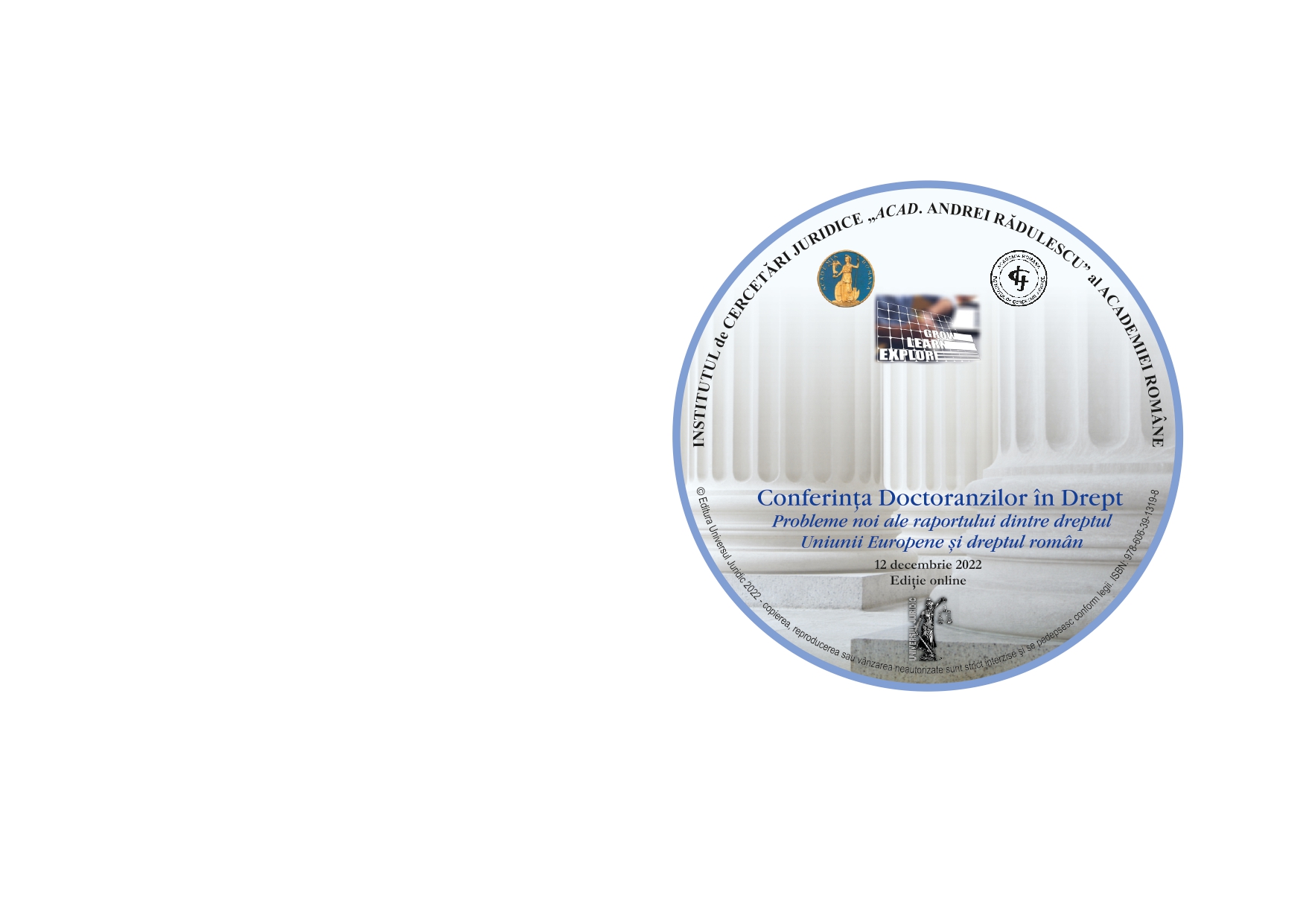Respectarea de către angajat a obligației de fidelitate față de angajatori în condițiile cumulului de funcții ca urmare a transpunerii Directivei (UE) 2019/1152 a Parlamentului European și a Consiliului din 20 iunie 2019
The Employee's Compliance With the Duty of Loyalty to The Employers Under The Conditions of the Accumulation of Functions as a Result of The Transposition of Directive (EU) 2019/1152 of the European Parliament and of The Council of June 20, 2019
Author(s): Gabriela Petruţa Ştirbu
Subject(s): Law, Constitution, Jurisprudence, EU-Legislation, Labour and Social Security Law
Published by: Universul Juridic
Keywords: Loyalty; Professional Activity; Obligations; Minimum Information; Freedom of Work;
Summary/Abstract: By Law no. 283 of October 17, 2022 for the amendment and completion of Law no. 53/2003- Labor Code, as well as Government Emergency Ordinance no. 57/2019 regarding the Administrative Code published in the Official Gazette no. 1013 of October 19, 2022, the transposition of Directive (EU) 2019/1152 of the European Parliament and of the Council of June 20, 2019 on the transparency and predictability of working conditions in the European Union was desired. Directive (EU) 2019/1152 does not provide for the obligation of loyalty to the employer among the information that must be communicated to the employee, although the Directive specifies in Article 9 of its content, the parallel exercise of another professional activity by the same employee, including within another employer. In the version prior to the entry into force of Law no. 283/17.10.2022, this possibility of the employee was regulated in the Labor Code, through the amendment made adding an additional condition and an absolute prohibition to the employer, as a result of the transposition of the Directive. The problem that arises is the way in which the employee will respect his obligation of loyalty to the employers, given that the Labor Code does not provide for express limitations regarding the conclusion of several employment contracts with different employers, although the Directive states that the states members may impose restrictions in this respect. Thus, by law ferenda, the amendment of art. 36 of the Labor Code by precisely defining the terms and establishing limits in which the employee can have the same position (activities, professions, trades) within several employers with respect for the obligation of loyalty and with respect for his freedom of work.
Book: Probleme noi ale raportului dintre dreptul Uniunii Europene și dreptul roman
- Page Range: 135-149
- Page Count: 15
- Publication Year: 2022
- Language: Romanian
- Content File-PDF

